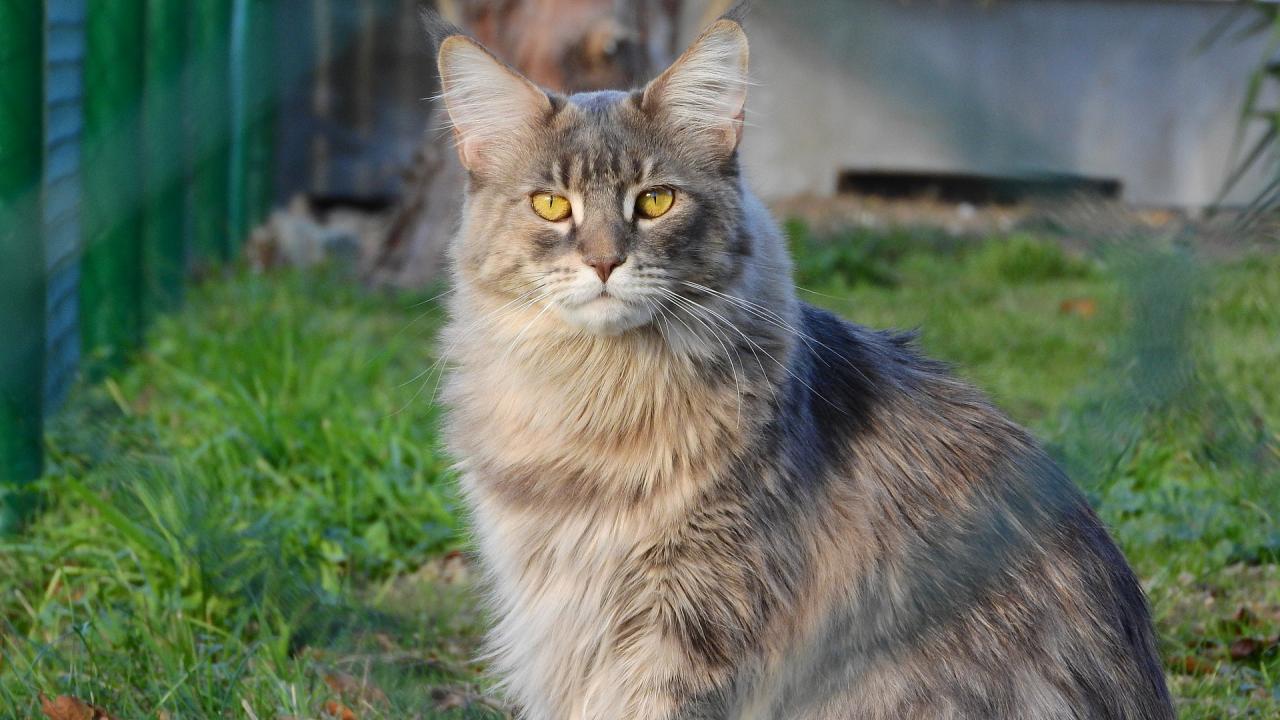
Hypertrophic Cardiomyopathy
What is hypertrophic cardiomyopathy?
Takeaways
- Hypertrophic cardiomyopathy (HCM) causes progressive, abnormal thickening of the walls of the heart, increasing the risk of heart failure, blood clots and sudden cardiac death.
- HCM is the most common feline cardiac disease.
- Some cat breeds are at increased risk for HCM.
- Breed-specific genetic mutations associated with HCM have been identified in Maine Coons and Ragdolls. Genetic tests are available for these breeds.
- There is no cure for HCM in cats.
- Some cats do not exhibit clinical signs and have normal lifespans.
Hypertrophic cardiomyopathy (HCM) is a disease that causes progressive, abnormal thickening of the walls of the heart (predominantly affecting the left ventricle). This thickened heart muscle can make it difficult for the heart to relax normally, promotes abnormal heart rhythms and sets up an environment where blood clots can form more readily.
Hypertrophic cardiomyopathy is the most common feline cardiac disease, affecting 1 in 7 cats. It has been reported in both males and females, with males more commonly affected. This is an adult-onset disease in most cases, although prevalence increases with age.
Some breeds are at increased risk for HCM, including Maine Coon, Ragdoll, British Shorthair, Persian, Bengal, Sphynx, Norwegian Forest Cat, Birman, and Chartreux. Breed-specific genetic mutations have been identified in Maine Coons and Ragdolls and genetic testing is available in these breeds. However, this represents only a small number of reported HCM cases in cats, with the genetic mutation resulting in HCM being unknown in the vast majority of cats.
What are the clinical signs of hypertrophic cardiomyopathy in cats?
Clinical signs of HCM in cats can vary from non-specific signs such as lethargy and inappetence to more severe signs such as weakness, trouble breathing, collapse and sudden death. The most common cause of clinical signs of HCM in cats is congestive heart failure. Blood clots that form in the diseased heart and later get lodged in the femoral arteries may cause affected cats to lose function of their back legs. However, more than half of affected cats may show no clinical signs.
How is hypertrophic cardiomyopathy diagnosed in cats?
Definitive diagnosis of hypertrophic cardiomyopathy in cats is made by echocardiography (left ventricular diastolic wall thickness > 6 mm without a hemodynamic or metabolic explanation). Although this ultrasound of the heart is the gold standard for diagnosis, other tests such as electrocardiograms, blood tests looking for biomarkers, physical exam findings or x-rays may help veterinarians know that patients may have HCM and thus require the echocardiogram. There are other diseases that can mimic HCM and ruling those out is an important part of the diagnostic process. Things like high blood pressure and elevated thyroid hormone are typically ruled out before a diagnosis of HCM is confirmed
How is hypertrophic cardiomyopathy treated in cats?
At this time, treatment for HCM in cats is supportive since there is no commercially available medication shown to reverse the thickening of the heart muscle. Therapies may include medications to prevent blood clots, improve blood flow, and control heart rate or rhythm. Cats with no clinical signs may not require treatment, but routine reevaluations may be recommended to monitor disease progression. Current drug trials in humans and cats are aiming to identify new medications that can slow down or reverse disease progression.
What is the prognosis for hypertrophic cardiomyopathy in cats?
The prognosis for HCM in cats is variable. Some cats with HCM do not develop clinical signs and have a normal lifespan, whereas others may rapidly progress to heart failure or sudden cardiac death. Cats that are diagnosed with HCM and develop blood clots have the worst prognosis. There is currently no cure for HCM in cats.
How can hypertrophic cardiomyopathy be prevented in cats?
There are currently no preventative therapies that have been shown to alter the course of HCM in cats. There are currently numerous studies in cats and people being performed to identify novel drugs that may reverse or slow down this disease. This is an exciting area of clinical advancement and we are hopeful this will yield better outcomes for cats in the future.
Genetic testing for HCM is available in Maine Coon and Ragdoll cats and is recommended for individuals intended for breeding. Genetic testing for HCM may also be used in these breeds to determine the relative risk of developing the disease.
Hypertrophic cardiomyopathy in Maine Coon cats has an autosomal dominant mode of inheritance with incomplete penetrance. In Maine Coon cats with two copies of the disease-associated mutation, moderate to severe cardiac disease can lead to sudden death by four years of age. Cats that carry one copy of the mutation have a longer life expectancy, but may still develop HCM.
Ragdoll HCM is also reported to follow an autosomal dominant pattern of inheritance with incomplete penetrance. Ragdoll cats with two copies of the disease-associated mutation are at high risk of developing severe signs of HCM, usually between one to two years of age, and have a greater likelihood of early cardiac death. Cats that carry one copy of the mutation often show little overt disease and have more normal lifespans.
For more information:
Hypertrophic cardiomyopathy genetic test in Maine Coons
Hypertrophic cardiomyopathy genetic test in Ragdolls
Stern Translational Cardiac Genetics and Pharmacogenomics Laboratory, UC Davis School of Veterinary Medicine
ACVIM consensus statement guidelines for the classification, diagnosis, and management of cardiomyopathies in cats
“Genetic impacts on drug therapy for cats with hypertrophic cardiomyopathy”, UC Davis School of Veterinary Medicine Clinical Trial
“Cats and People Get New Chance for Improved Heart Function”, UC Davis School of Veterinary Medicine
*This article may not be reproduced without the written consent of the UC Davis School of Veterinary Medicine.
